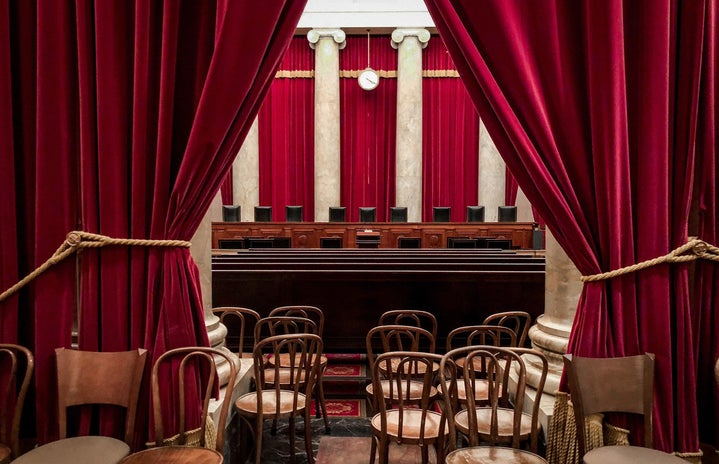When you look at the state of our nation today, did you think this is where we would be four years ago? For many Americans, our nation’s condition is at the lowest point in our nation’s history, while for others, they see the past four years as a real American victory. With possibly the most controversial and unorthodox presidential administration worsening the American people’s massive divide, the loss of Justice Ruth Bader Ginsberg seemed to aggravate it even further. Now the American people are not only fighting over the highest office in the land, the Senate, and House, but they are now entering into a fight for the highest court in the country. On September 26th, 2020, Judge Amy Coney Barrett was announced to be President Trump’s official nomination to the Supreme Court. The nomination itself was controversial since the election was less than 40 days away. Despite that Senate Republicans had denied Judge Merrick Garland, President Obama’s Supreme Court nomination, due to the proximity to the 2016 elections (which was almost a year away at the time of nomination). Additionally, nominee Judge Amy Coney Barrett is quite a controversial figure. But who is she, and what does she stand for?

Judge Amy Coney Barrett is unlike the other Justices nominated and appointed via the Trump administration. Unlike the Justice Neil Gorsuch or Justice Brett Kavanaugh, Judge Barrett is a woman. Not only is she a woman, but she does not tote an Ivy League education like the Trump Administration’s past appointments. A graduate of Rhodes College (a small liberal arts school in Memphis) and Notre Dame’s Law School, Barrett is a devout catholic and has been ingrained in a religious lifestyle her entire life. She chose Notre Dame specifically because of the religious background and environment. After graduating from Notre Dame’s law school, she served as a clerk to the late Justice Scalia, whom Justice Gorsuch replaced. Like him, she shares his originalist view of the law. Originalism versus living interpretation of Consitution is an ongoing debate among the legal world. Originalism is of the mindset that the Consitution is a fixed document and must be interpreted as such. The living approach is that the Consitution itself evolves and grows with society. As Justice Scalia was a staunch originalist, Justice Ginsberg was a revolutionary non-originalist, also known as an “activist justice.” This presumably means that Justice Barrett will rule in a matter that sticks very close to the original meaning and intention of the founding fathers when they wrote the Constitution over 200 years ago. In addition to being an originalist, Judge Amy Coney Barrett is quite an active advocate against abortion and in favor of restricting access to birth control. Most notably, while a faculty member at Notre Dame after her clerkship, she a member of anti-abortion advocacy groups and was one of many who opposed President Obama’s contraception mandate in 2013. Another notable fact is that Barrett is still a very new federal judge and has only been serving on the Seventh Circut Court of Appeals since October 2017, after being nominated by President Trump just months after his inauguration. This isn’t surprising as many of the high-ranking members of the Trump administration and the Republican party focused on ensuring that as many staunch originalist and conservative judges were appointed to federal and state courts to solidify the American judicial system as a conservative entity.

This week the Senate Judiciary Committee, currently headed by Senator Lindsey Graham (R-SC), took turns questioning Judge Barrett. Unlike the hearing of Justice Kavanaugh, Barrett was more relaxed and answered questions carefully. Senators asked her many questions varying from her stance on Roe v. Wade and Obergfell v. Hodges. Judge Barrett declined to answer any questions and provided limited insight into how she might rule. Ironically, many refer to as the “Ginsberg rule” as Justice Ginsberg set a precedent not to dictate how a judge might rule on future cases for ethical reasons. Many other Supreme Court nominees now follow this precedent. When asked questions on broad topics like climate change, health care, and separation of children at the border, Judge Barett declined to comment. When Senator Kamala Harris (D-CA) asked her about climate change, she responded with, “I will not do that…I will not express a view on a matter of public policy, especially one that is politically controversial.” Her nomination hearing ended with the committee setting the date to vote for her confirmation on October 22nd. Amy Coney Barrett is being praised by the Republicans in the senate for her performance during the hearing. At the same time, Democrats echo sentiments of dissatisfaction with her silence on so many American people’s problems.




